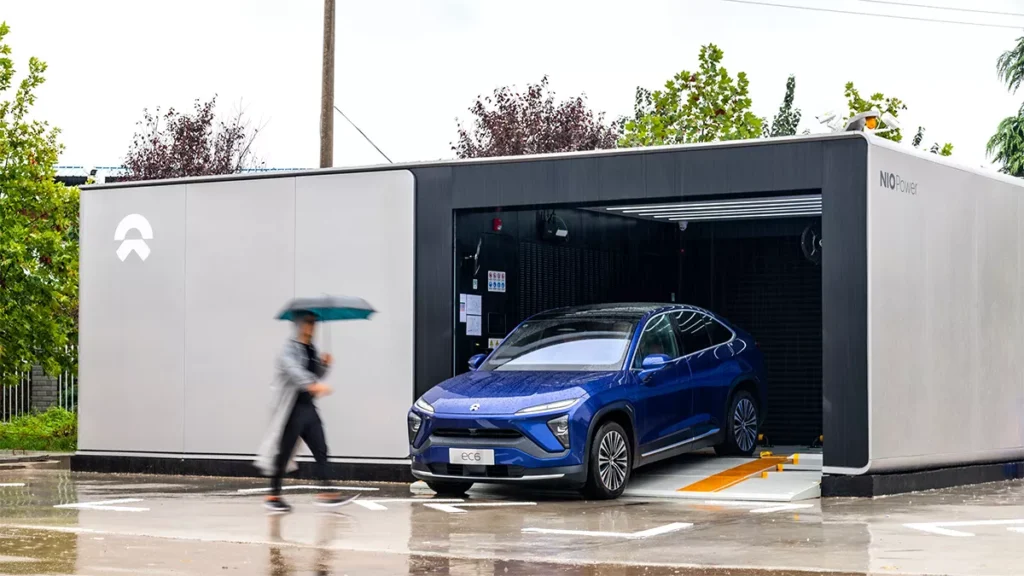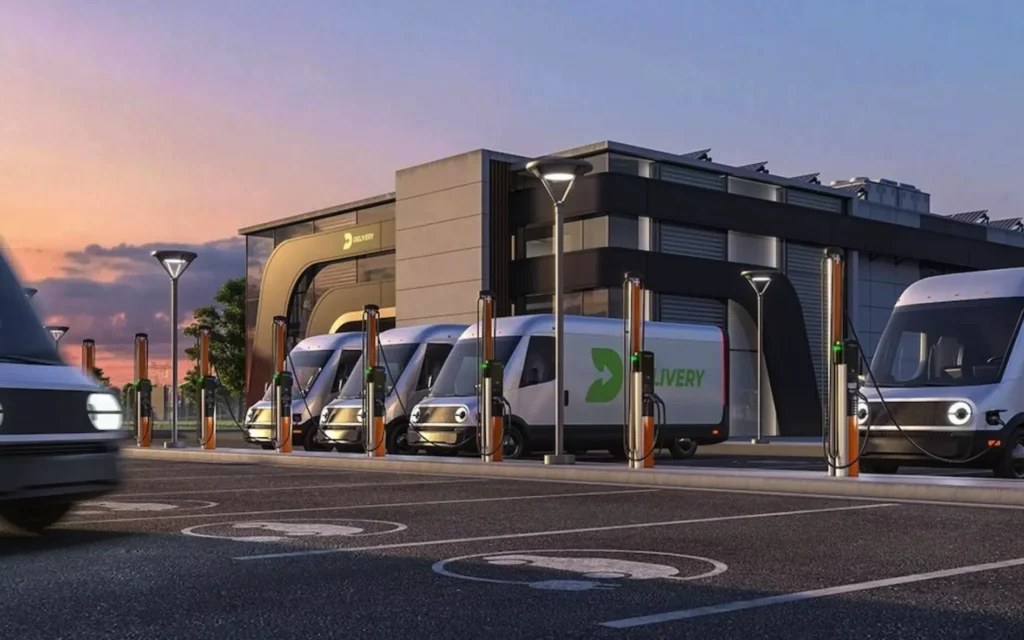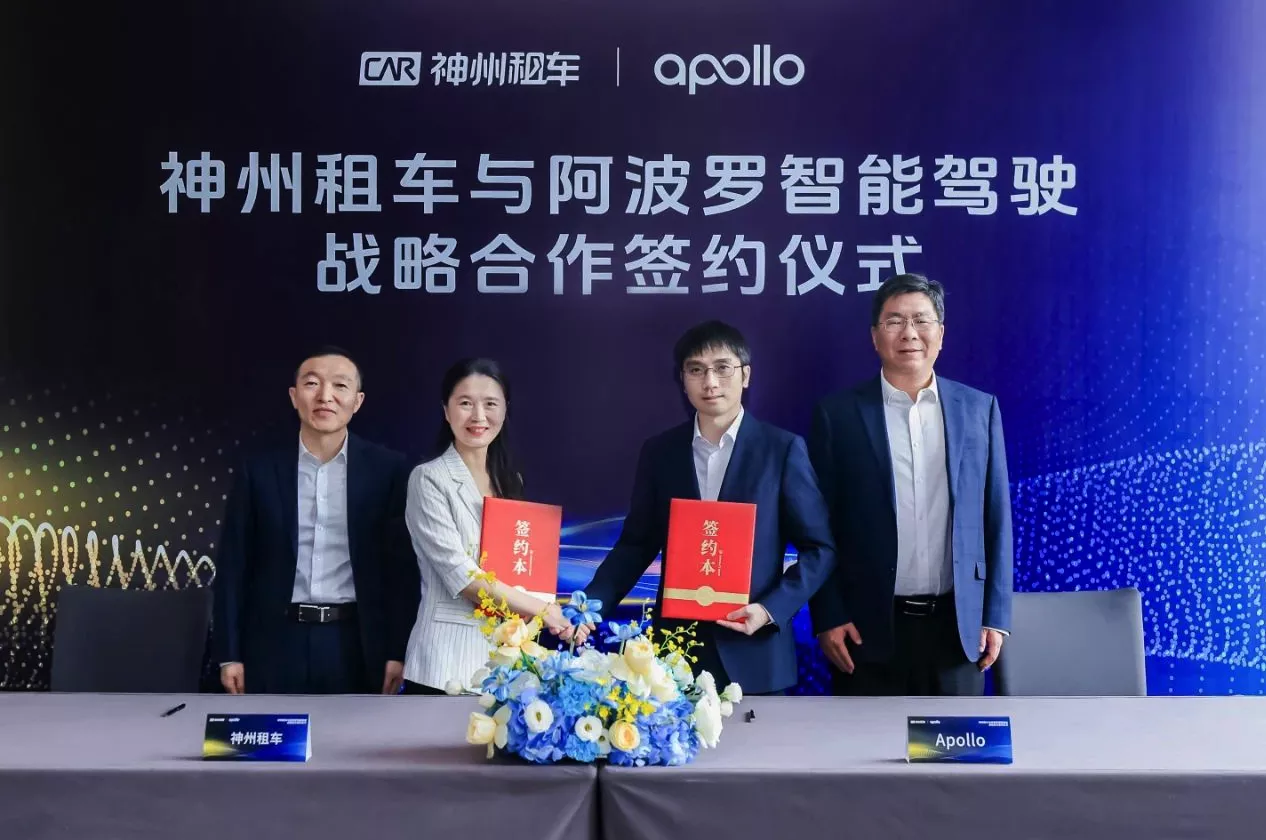










From EVs and batteries to autonomous vehicles and urban transport, we cover what actually matters. Delivered to your inbox weekly.

Baidu’s Apollo and CAR Inc. are skipping the robotaxi hype. Instead, they’re turning China’s rental fleets into autonomous deployment networks.
Baidu’s autonomous driving arm, Apollo, just signed a strategic pact with CAR Inc., the country’s largest rental platform, to launch the world’s first autonomous vehicle rental service. The deal bypasses the fantasy of private AV ownership and the regulatory gridlock of robotaxis.
Instead, it embeds self-driving cars directly into an existing infrastructure with real users, real cities, and real revenue.
Starting Q2 2025, travelers will be able to rent autonomous vehicles on demand to tour city landmarks and regional cultural sites. This signals a huge focus on ownership-free exploration. And it’s happening pretty fast.
Apollo supplies the decade-hardened autonomous stack. CAR Inc. brings the bookings, fleet management, and national footprint. Together, they’re creating an operational layer that most AV companies are still prototyping.
This model hits a blind spot in global AV strategy. Most Western firms have treated autonomy as a taxi service or luxury feature.
But Apollo and CAR Inc. are treating it as infrastructure: predictable, scalable, modular. With China’s car rental market projected to top ¥300 billion by 2030, the addressable upside isn’t hypothetical. It sits on a platform with built-in users and demand patterns.
Targeting tourism is a calculated move. High-density travel corridors, repeatable routes, and lower regulatory friction make it an ideal proving ground. Young, tech-native travelers get flexible, app-driven access to AVs. Operators get monetizable usage hours instead of subsidized pilots. No safety driver. No low-margin rides.
The two companies are co-developing safety, reliability, and service standards for autonomous rentals — creating the compliance blueprint regulators have been demanding.
While Cruise pulls vehicles off the streets and Waymo stays geofenced, Apollo is opening a second front: not robotaxis, but autonomous rentals. It’s faster, cheaper, and easier to regulate. It also reframes the question. The core AV debate isn’t about when full autonomy arrives, but where the first viable business models emerge.
Robotaxis burned cash. Rentals might print it. Who else is ready to shift autonomy from showcase to infrastructure?